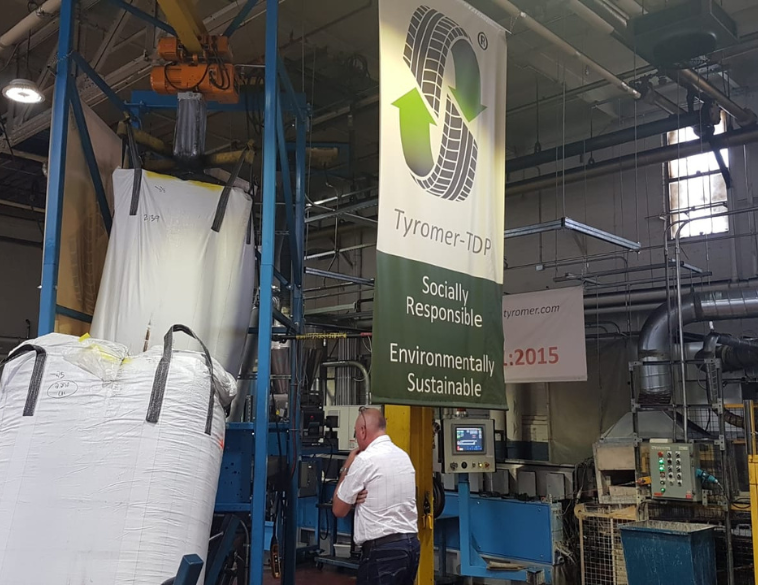Sustainability can produce significant benefits in emissions reduction
A trend that’s been continuing to grow in the tire industry, is the use of recovered carbon black to manufacture new tires. In an era where environmentally sustainable business practices are becoming more important and emphasized, the ability to reuse carbon black, can reduce carbon dioxide emissions in new tire production by up to 85% in comparison with using new materials such as traditional carbon black.
Early stages
There are challenges, however. In a recent report commissioned by Smithers, entitled The Impact of Sustainability on Carbon Black, the author, tire-derived carbon black specialist and industry consultant, Martin von Wolfersdorff, noted that while the development of using recycled carbon black in the tire industry is encouraging, it still accounts for less than 1% of the total carbon black used in new tire manufacturing worldwide.
Von Wolfersdorff cites that a significant reason for that is because the supply pipeline for the recovery of carbon black is still considered weak, yet the benefits of those tire producers that choose to adopt a carbon black recovery strategy for manufacturing can be very significant. Not only does it result in significantly lower CO2 emissions, but it also enables the industry to reduce its reliance on traditional petrochemicals, without significant performance drawbacks.
Tires and vehicle emissions
At present, there is a lot of focus on transportation as a source of CO2 emissions. The vast majority of this centres around the vehicles and emissions output from their powertrains, hence the current emphasis on zero-emissions and battery-electric propulsion systems. Yet von Wolfersdorff says we also need to consider the impact of tires when looking at transportation emissions. Tire raw materials account for roughly 10% of the emissions generated by a traditional gasoline-fueled vehicle, but when viewed against battery electric vehicles, this increases to 24%.
Like many other industries, while environmental sustainability is currently very much in vogue, achieving real, practical reductions in emissions output while meeting global demand by using recycled or bio-sourced materials is both challenging and complex.
Political trends
Political pressure from governments around the world is causing the tire industry to look at ways to reduce emissions and bolster sustainability in manufacturing, by pushing the sector toward a circular economy operating model where more and more materials are recovered and reused instead of being discarded.
The Smithers report by von Wolfersdorff analyzes in detail the growing interest in sustainable carbon black and how it meets the sustainability objectives of tire manufacturers. The report also delves into the use of alternative rubber fillers and how they can meet the needs of both the tire and automotive industries.
According to von Wolferstoff, out of more than 900 companies globally that specialize in supplying carbon black to the tire industry, at present, only around 20 are seen as delivering recycled or recovered carbon black. In order to meet sustainability targets, both from a legislative and organizational standpoint, that number will have to increase significantly in the coming years, though how successful that increase will be, hinges on the ability of carbon black suppliers, tire manufacturers and distributors to meet global demand.



